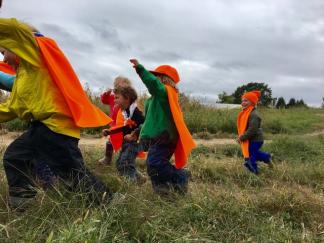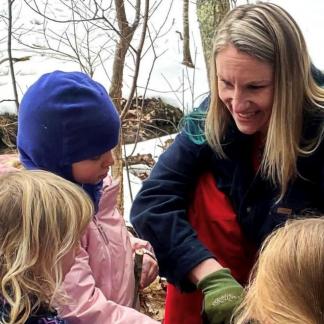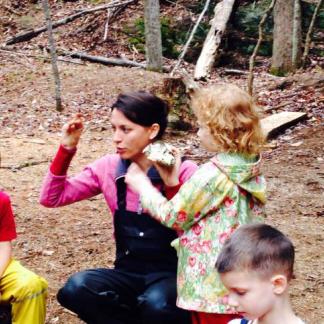Member Spotlight
White Pine Programs
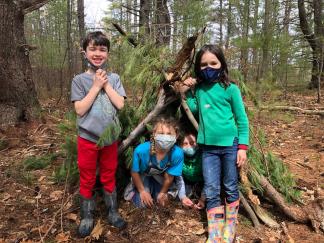
White Pine Programs in York, Maine, began in the late 1990’s with a youth program for home-schooled students. The nonprofit organization now has 18 year-round employees, runs programs over 270 days per year and reaches children and adults, from age four and up. Programs vary throughout the year: summer camp, a year-long school day program for ages 4 – 15, monthly weekend youth programs, after school programs in three communities, wildlife tracking for adults, various family programming, and more.
Their program offerings include Acorn Weevils Forest Kindergarten, which began several years ago as a half day program in the woods behind the founder’s home. Acorn Weevils is now located at the the beautiful Zacharias Family Farm in York, a 250+ acre working farm that is surrounded by forest and the York River. The Forest Kindergarten is full day on Tuesdays and/or Thursdays and enrolls 36 children ages 4-6. The core elements of the program are gratitude, fostering curiosity, intergenerational mentoring, and unstructured nature play. In 2020, White Pine saw such an incredible demand for forest kindergarten, that they started a half-day option in partnership with York Land Trust.
We reached out to Heather Campbell, Executive Director of White Wine Programs, to learn more about their work.
Offering nature-based programming, or really any high-quality education program, is expensive. Can you tell us about your efforts to make your programs more accessible to families?
Access to affordable nature-based education programs has been a renewed focus for White Pine over the last two years. Historically, our scholarship application (used in all our fee-for-service programs) was clunky for both families and staff and the process was laden with privileged nuances. Last spring, we piloted a new financial aid model used by some of our fellow nature connection schools. Rather than a separate process with a one-time pool of money, families now apply for aid during registration and decisions are made on a monthly basis.
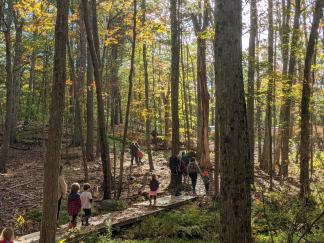
The key element is a sliding scale tuition, with the ability for families to ask for what they need, if a 50% discount isn’t enough. This model is partly funded by families with the means to pay more than the base cost who choose a “support a student” tuition. One lesson we’ve learned using this new model is that we have to be ready to trust applicants’ responses to questions such as income level and whether or not they qualify for free and reduced lunch. In a small community, this can feel edgy and uncomfortable. It’s a good reminder that struggle can look differently for every family.
To truly address access, we needed to think beyond financial aid and actually consider our whole program delivery model. One of our core values is “meeting people where they are at.” When we got really serious about overcoming barriers to nature-based education, this mantra inspired us to quite literally meet them where they are: at schools, at community centers, at libraries. Last year, we piloted an "outdoor learning" allied art special with K and 1 students at our local elementary school. We were on the school grounds collaborating with teachers and administrators to enable their staff to deliver nature-based education that met, and often exceeded, their requirements for a standards-based curriculum. Because it was integrated into the school day, there were no barriers to kids participating. This year, we are partnering with the SAFE after school program at the Kittery Community Center to provide a weekly afternoon of nature connection activities. Rather than running a private program in Kittery that would have reached 20 kids, we are now working with 90 kids per week with minimal barriers.
We've also heard that you've had success with fundraising. Do you have any tips to share with our other members?
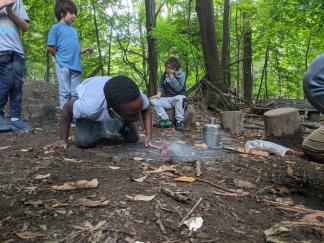
When browsing your website, we saw that you have a statement in support of Black Lives Matter. That's great! Is there any work that you've done around equity and inclusion that you'd like to share with our members who are also working toward similar goals?
